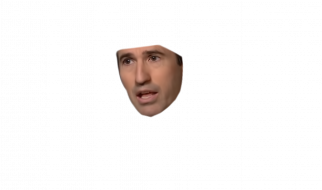The debate on whether to watch foreign movies in the original language using English subtitles or with an English voiceover dubbed in has gone on for as long as we have had access to foreign movies, but in particular since the 90s when studios like 4Kids were hard at work butchering the western releases of anime like Yu-Gi-Oh and One Piece.
Why not just leave the debate at ?It depends? and ?It comes down to preference?? Both are inarguably true. But there are different levels of truth, and if we reopen the question ? ?Subs Or Dubs?? ? we might find there is something to learn.
Besides, I don?t feel that the culture at large has left things that neutrally. In fact, it seems that anyone who wants to express a preference for dubs in communities devoted to anime or foreign films does so apologetically, or with a hint of self-deprecation, as if to watch dubbed is to admit defeat.
There are a lot of reasons to watch foreign releases (and let?s focus on animation for now) with subtitles. While a bad subtitle might be a source of annoyance, a bad dub ? passionless delivery, irritating voices, bad synchronization with the animation ? can utterly ruin a show. We?ve been burned before. Additionally, while a direct translation is straightforward to deliver as subtitles, a dub presents additional challenges and is more likely to result in changes that might dampen the impact of the dialogue.
(I won?t get into the issue of making changes for cultural reasons ? these might be associated with dubs and be implemented at the same time by the localisation team, but dubbing doesn?t cause the problem).
There is one argument for subtitles that I will not accept, and I don?t think you should either: that the subtitled release is the more authentic, pure version of the film; the film ?as the creators intended?. Sounds convincing ? but it?s totally wrong.
?The creator? ? a nebulous concept, by the way, that really should refer to the entire cast and crew, even if the writers and directors might have more influence on the overall result than others, but we?ll stick with it ? the creator of a Japanese anime makes that anime to be watched by Japanese viewers. I know this because if it had been made for English viewers, it would have had English voiceovers! Is this a circular argument? Tough ? it?s true.
Creators have expectations of their audience, some so obvious they don?t need to be said out loud. For instance, they get to work assuming that most of their audience are sighted, for example ? otherwise what would be the point of animating anything? Similarly, they expect that the viewer’s eyes work more or less the same, that they will follow the action, their eyes will be drawn to relevant parts of the screen. Such assumptions are how cinematographers make decisions about framing and composition.
Creators also assume their viewer (the core viewer, the Japanese fan in the case of anime) will be watching in their native language.
Imagine the experience of watching anime as a Japanese viewer. Now imagine the experience of watching a subtitled anime as somebody who does not understand Japanese? In the second case, the viewer is not only receiving near-gibberish through their ears, but their eyes as are being forced to flick up and down the screen to read the subtitles, instead of naturally following the action as it happens. Is this situation in any way what the creator had in mind?
The experience of a Japanese-speaking viewer watching the Japanese original is much more similar to an English-speaking viewer watching the English dub than to them watching with English subtitles.
The ?intention of the creator? is that the show should be watched in its original language specifically by speakers of that language. People interpret this to mean it should only be watched in the original language, instead of doing the sensible thing and aiming (if possible) to watch it in their own native language.
This is enough for me to say that dubs are theoretically the ?correct? way to experience foreign language works.
(An opinion that isn?t even entertained in most anime communities, I?ll add?)
Translations are wonderful things that bring us closer together ? but not as close as being able to communicate directly, in the same language. Translation means a minimum degree of sepatation.
Watching a show in your native language means being to relate directly to those characters, to hear them as if you were there yourself, on the sidelines of their world, observing their struggles and triumphs. It means being able to experience their personalities in their full complexity, which the non-verbal component of their voices is a large part of, which we can only absorb and enjoy the subtleties of if we also first understand the words themselves.
Many of the decisions made by a voice actor are lost to you unless you speak their language.
?When you watch the subtitled version you are probably missing just as many things. There is a layer and a nuance you?re not going to get. Film crosses so many borders these days. Of course it is going to be distorted.? ? Hayao Miyazaki (Source)
I?m not arguing for any dub, of course. I?m arguing for good dubs. But to accept good dubs we first have to accept dubs in general.
***
I will admit, when I?m watching a dub, sometimes I start to feel a little anxious. Sometimes I?m not totally sure that the voice actor is representing the character as I think they should be ? especially if they seem like a character I would like. I wonder, is this not ?really? the character? Is it just a bad duplication? Am I missing out? Is the grass greener? I?ve got no way of knowing if it is, of course. The Japanese actor might be terrible anyway. Or maybe the English voice actor perfectly interprets them, so that even if you could understand the Japanese you?d only be getting a similar experience. But I think this sort of experience might start to account for why people look to the originals, because even if it doesn?t exactly answer the question for them at least they have nothing further to ask.
Or sometimes I want to rewatch an anime I have already seen with subtitles, and think twice. I had this experience recently with Your Name, an anime I utterly adored. Who knows how a dub could retroactively spoil the experience I had with that sublime anime.
But then I think of great dubs like The Girl Who Leapt Through Time or or Cowboy Bebop, and remember, wait, yes, that?s exactly what I want!
For those that are still uneasy with dubs because of the feeling that the original version is ?the true article?: Remember, each show/film is a collaboration. An anime is not all the work one Japanese dude with a vision. Actors have their own artistic choices to make ? the dubbing actors just as much as the Japanese one. Whichever you choose, you?ll get one group?s interpretation of the script over anothers. The argument for one being a more valid interpretation might not be much of an argument at all!
***
I wonder if an element for the popularity of subs is that they preserve the ?otherness? of the foreign work, give it a rare, exotic air that we feel a dub ? too pedestrian ? would ruin. Perhaps, though such otherness does not exist for native viewers. On the same note, for all the anime fans who posit that dubs are only for people who can?t read fast enough or have an attention deficiency, what do they think of the native viewer, for whom no reading is required at all?
(I won?t allow myself to loiter on the question of how much of the popularity of subtitles are due to them being a vehicle for some fans to show superiority over others)
I want more great anime dubs because I truly believe that a great (accurate, evocative, pleasing) anime dub is the best possible way I, as a non-Japanese-speaker, can appreciate anime.
Let?s not be scared of dubs, then. If we continue to believe the superiority of subtitles and the people who watch with subtitles, we?ll only deny ourselves the potentially great dubs of the future, as studios think it isn?t worth the cost. Let?s make it worth it: let?s buy the works of studios that produce good dubs, like Bang Zoom!, and support critics that we can trust to tell us which dubs are good.
You may also want to consider that more great dubbing is probably the road forward to a more successful and mainstream foreign film/television fandom outside in English-speaking countries. If you want to make it easier to recommend anime to your family, great dubs are your best bet.
In conclusion:
Love dubs.
I hope you will see to it that my works are performed in English; only in this way can they be intimately understood by an English speaking audience. ? Richard Wagner (Source)
Appendix A: Live-Action
With anime it seems to be an easier discussion because in a sense both the Japanese original version is ?dubbed? ? the voice acting is dubbed onto the animation, the only difference in process being whether it is done with Japanese or English voices. But what about live action?
That?s a more challenging debate. My points above still apply, but by separating the actor’s performance into the body movements of the actor and the voice of the dubber the coherence of the performance is sundered. For some people, the imperfect lip-sync will be a deal breaker alone.
You want to consider that dubs are how much of the world enjoys mainstream western movies like Avengers ?it?s possible more people world over have watched the various dubs of that film than the original film in English. If you choose to watch foreign films dubbed, you certainly wouldn?t be alone.
All I?ll suggest is this: give live action dubs a chance. You might find after you acclimatise to their unusual qualities you?re still more immersed than if you?d watched with subtitles.

